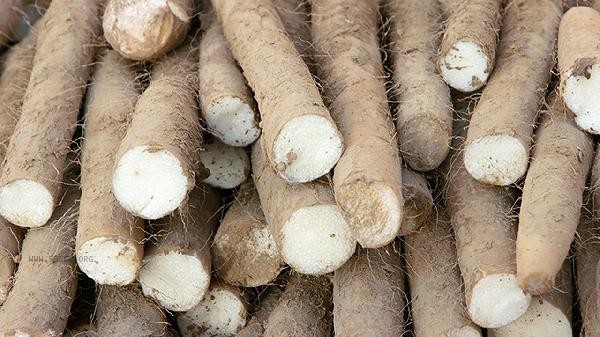Chinese yam is not suitable for those with spleen and stomach deficiency and cold, those with excessive dampness, those with diabetes, those with allergic constitution and those with constipation. Although yam is a medicinal and edible product, some people may experience worsening symptoms or discomfort after consuming it.

1. Patients with spleen and stomach deficiency cold
Yam has a mild to cool nature, and long-term excessive consumption by patients with spleen and stomach deficiency cold may worsen symptoms such as abdominal pain and diarrhea. This type of population often manifests as chills, cold limbs, and thin stools. It is recommended to choose ginger and red dates as warm and nutritious food for daily diet. If you need to eat yams, it is recommended to cook Congee with japonica rice to neutralize its coolness.
2. Patients with excessive dampness and fullness
Patients with excessive dampness and fullness have stagnant phlegm and dampness in their bodies, often with abdominal distension and thick and greasy tongue coating. Yam is rich in starch and mucus, and excessive intake may promote dampness and phlegm production. This group of people should first adjust their physical condition through moisture reducing ingredients such as coix seed and adzuki beans, and then consume a small amount of yam as appropriate after the dampness is reduced.
3. diabetes patients
have a high content of yam starch, and the glycemic index is about 53. diabetes patients need to strictly control their intake. It is recommended to choose medicinal varieties such as Huai yam, consume no more than 50 grams per serving, and reduce the intake of staple foods accordingly. People with large fluctuations in blood sugar should follow the doctor's advice to decide whether to consume it.

4. Allergic constitution
Yam mucus contains allergenic ingredients such as dioscin, and some people may experience allergic reactions such as skin itching and redness after contact. People who have been allergic to yam, konjac and other Dioscoreaceae plants in the past should eat with caution. If allergic symptoms occur, loratadine tablets can be taken to relieve them. In severe cases, medical attention should be sought in a timely manner.
5. Constipation population
The astringent and astringent characteristics of yam may exacerbate solid heat constipation, manifested as dry stools, bloating, and refusal to press. This group of people is more suitable for using moisturizing and laxative ingredients such as roasted sesame seeds and cassia seeds. If you need to consume yam, it is recommended to pair it with almond milk or honey to alleviate its astringent effect. Special populations should consult a traditional Chinese medicine practitioner before consuming yam, while the recommended daily intake for the general population is between 100-200 grams. When cooking, you can choose steaming to preserve nutrients and avoid high-fat methods such as frying. Pairing with ingredients such as goji berries and lotus seeds can enhance the spleen strengthening effect. Special attention should be paid to compatibility taboos with traditional Chinese medicines such as Gansui and Yuanhua. When indigestion occurs, clockwise massage of the abdomen can be used to promote digestion.









Comments (0)
Leave a Comment
No comments yet
Be the first to share your thoughts!